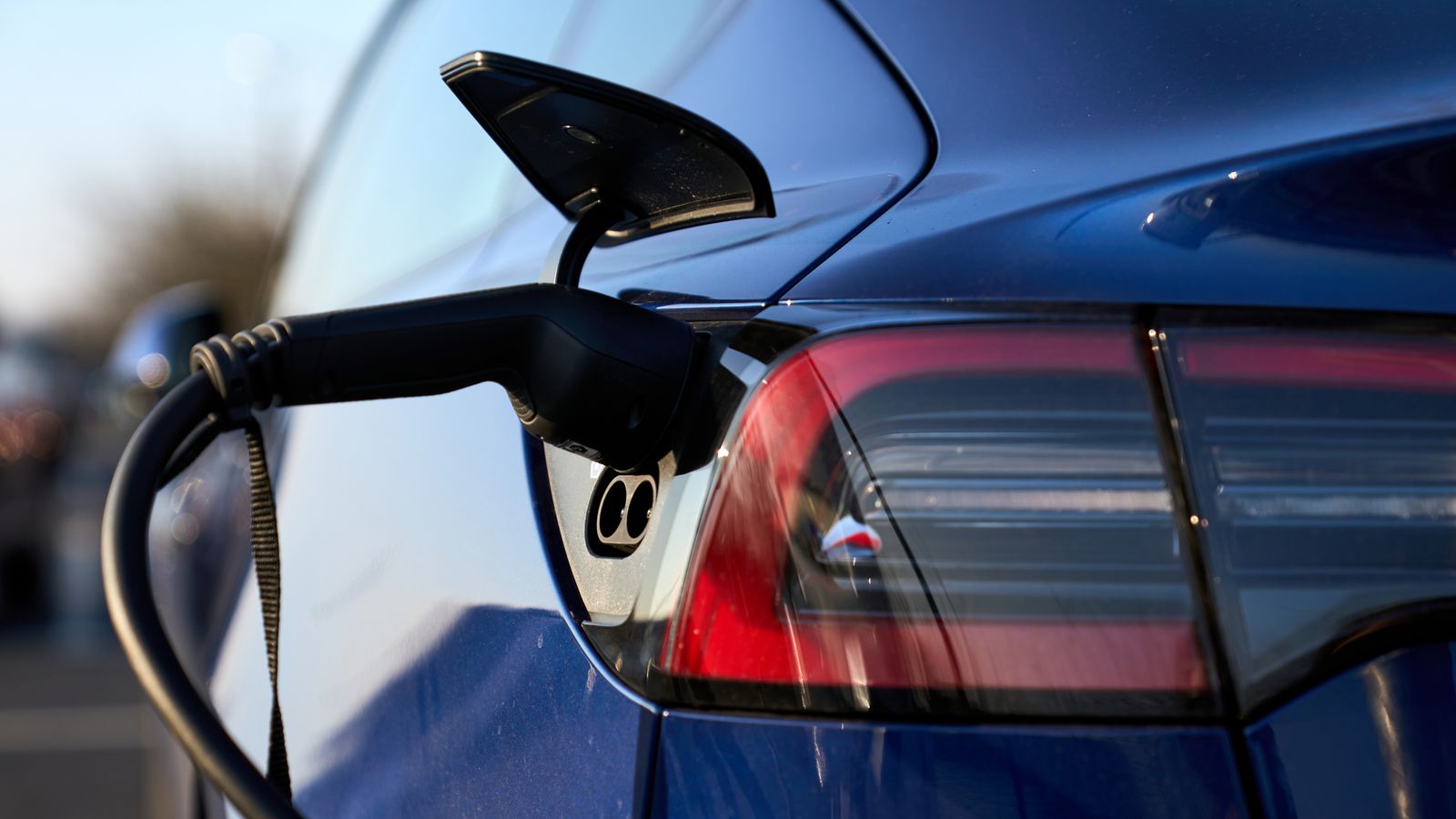It is laughably misnamed – but there is nothing funny about President Joe Biden’s Inflation Reduction Act if you are from outside the United States.
The act, signed into law in August last year, has absolutely nothing to do with tackling the cost of living crisis.
Rather, it is a gigantic piece of pump-priming, a $369bn package dangling generous subsidies and incentives to stimulate the take-up and roll-out of green energy across the US.
It is specifically aimed at encouraging more manufacturing of electric vehicles, and the batteries that power them, in the United States.
Businesses, particularly those involved in making things essential for the energy transition such as wind turbines and solar panels, will obviously benefit.
So, too, will households. Among the act’s provisions are lobs to individual households, with tax credits worth up to $7,500 for those who buy new electric vehicles, while those buying EVs that are at least two years old could qualify for credits worth up to $4,000.
To put the size of those bungs in context, the median annual salary for an American worker last year was $54,132. The credits, naturally, will go only to those households buying EVs built in the US.
Great news, then, for US households and businesses.
The EU, however, is horrified. It believes the act breaks World Trade Organisation rules that forbid countries like the US from discriminating against imported goods and has warned it could retaliate.
Also unhappy are Canada, which has been jogged into rolling out more green subsidies of its own, while Japan and South Korea have also been aggrieved.
The act, then, threatens to spark a trade war. Such risks were common during the presidency of Donald Trump, who frequently threatened the EU with tariffs, for example in retaliation for penalties on the US tech giants.
Mr Trump also engaged in tit-for-tat trade disputes with China. Mr Biden’s approach to both China and trade disputes more broadly appears very little different from that of his predecessor.
It all presents a dilemma for the EU. Does it either seek to retaliate under WTO rules or does it respond with similar subsidies of its own, as has been urged by Bruno Le Maire, the French finance minister?
Margrethe Vestager, the EU’s competition chief, indicated in a speech on Wednesday in Brussels that she favours a mix of measures. Describing the US measures as “toxic”, she said the EU’s response would be “firm, but of course it will remain proportionate.” At the same time, though, she has called for “an EU green deal industrial plan”.
Note that very precise wording. It goes to the heart of the EU’s problem.
Countries like France and Germany, with big manufacturing bases to support, would be more than happy to subsidise such activities and, due to the size of their economies and the financial firepower at their disposal, would have little difficulty in doing so. Other EU member states, though, might struggle.
Please use Chrome browser for a more accessible video player
As Ms Vestager put it in her speech on Wednesday: “The reality in the EU today is that not all countries have the same capacity to spend. This means that a subsidy race between the member states will always be inherently unfair.”
She said that, while Brussels might seek to offer tax breaks to support new investments in the green economy, this would have to be done in a way that did not pit member states against each other or threaten the integrity of the EU’s single market – integrity which, as the UK has discovered to its cost with the Northern Ireland Protocol, the bloc will go to great lengths to defend.
Ms Vestager added: “We will not sacrifice the single market. Because a well-functioning single market is part of the engine that will make this work.”
In other words, stand by for a classic dose of EU fudge, aimed at supporting the green economy in the way Mr Biden aims to in the US but that will, in the process, probably involve individual protection or support for favoured groups. An industrial equivalent, if you like, of singling out French cheese producers or Italian olive farmers for special help.
Caught between these two blocs, at risk of being tossed like a cork on the high seas, is post-Brexit Britain.
Now outside the single market, there is little in principle to stop the UK offering big subsidies to manufacturers supporting the green transition. But British companies might also be at risk of being caught in the cross-fire should the EU choose to respond to Mr Biden’s act by rolling out subsidies for its manufacturers.
And, as business leaders have been stressing this week, there is not a moment to lose.
As Tony Danker, director-general of the CBI, noted in a well-received speech: “The UK is falling behind rapidly – to the Americans and the Europeans, who are outspending and outsmarting us. We’re behind the Germans on heat-pumps, insulation and building retrofits, the French on EV charging infrastructure, and the US on operational carbon capture and storage projects – despite the UK’s North Sea advantage. We’re lagging all three on hydrogen funding.
Please use Chrome browser for a more accessible video player
“We believe the UK could lead the world on green growth as we did in setting net zero targets. But we’re on the verge of being relegated from the Champions League by the Americans and the Europeans: both in an arms race to win global market share.
“Not only are they spending money, they’re abandoning regulatory barriers including state aid to win the prize. That’s a lesson for us on what it means to go big.”
Doing nothing is not an option, either, as Mike Hawes, chief executive of the Society of Motor Manufacturers and Traders, has made clear.
Releasing data that showed UK car production last year fell to its lowest level since 1956, the year of the Suez Crisis, Mr Hawes said the UK government has “got to do something” in response to Mr Biden’s act and the potential EU response.
He added: “You can’t just accept this laissez faire approach to investment, it’s not a level playing field.”
The problem is that, with the public finances shattered by the pandemic and now under strain due to both surging debt servicing costs and the cost of subsidising energy bills, the UK is in no position to throw as much money at green subsidies as either the US or the EU.
All is not lost, though. Mr Danker believes it is possible to “make smart fiscal choices rather than believing we can outspend the competition”, such as supporting immature technologies, while engaging in long overdue reform of the UK’s sclerotic, anti-growth planning rules.
The question, as he noted, is whether the political willpower exists to do this.






















